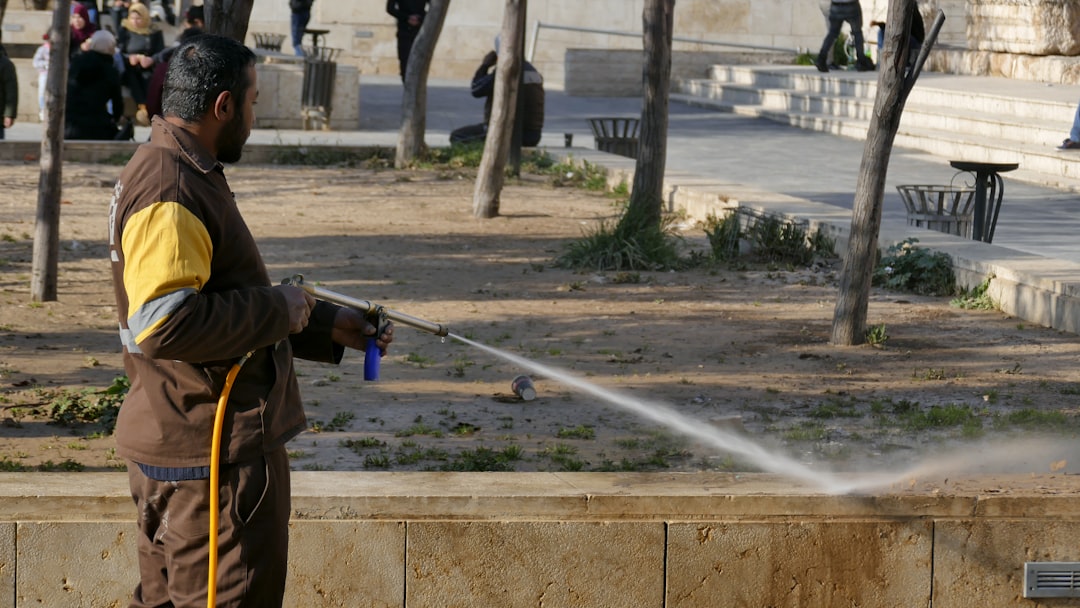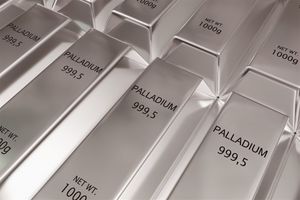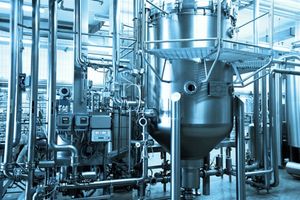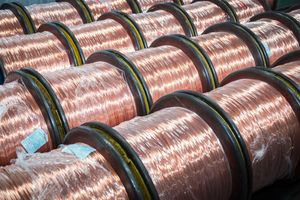 Photo from Unsplash
Photo from Unsplash
Originally Posted On: https://pinnaclecleaningaz.com/understanding-the-difference-between-pressure-washing-and-power-washing/
Understanding the Difference Between Pressure Washing and Power Washing
When it comes to maintaining the cleanliness and appearance of outdoor spaces, two terms often arise: pressure washing and power washing. While they may sound similar and are sometimes used interchangeably, there are distinct differences between the two methods. Understanding these differences can help you choose the right approach for your cleaning needs.
What is the difference between pressure washing and power washing?
The main difference between pressure washing and power washing is that power washing uses heated water to clean surfaces, making it more effective for removing tough grime and stains, while pressure washing relies solely on high-pressure water.
When hiring a commercial cleaning company to pressure wash your parking space, the temperature of the water typically depends on the specific needs of the cleaning task. In general, cold water pressure washing is used for parking lots, as it is effective for removing dirt, debris, and grime. However, hot water pressure washing may be used in certain situations, especially for cleaning oil stains, grease, or more stubborn substances.
- Cold Water Pressure Washing: The majority of parking lot pressure washing is done with cold water, typically at ambient temperature (around 50°F to 100°F). Cold water is effective for basic cleaning and is often sufficient to remove dirt, dust, and general debris.
- Hot Water Pressure Washing: If the parking lot has oil stains, grease, or other tough contaminants, a commercial cleaning company might use hot water pressure washing. In this case, the water temperature would typically be between 140°F to 200°F. Hot water helps break down grease and oil more effectively, making it easier to clean and remove stubborn stains.
If you are specifically looking for grease or oil removal, it’s worth discussing with the cleaning company whether they will use hot water or if they have special cleaning agents designed for cold water pressure washing that can break down tougher substances.
What is Pressure Washing?
Pressure washing is a cleaning method that uses high-pressure water spray to remove dirt, grime, mold, mildew, and other debris from various surfaces. The pressure of the water is typically adjustable, allowing for a versatile cleaning approach suitable for many types of surfaces, including:
- Concrete: Pressure washing can benefit driveways, sidewalks, parking lots, warehouses, and showrooms by removing stubborn stains and accumulated dirt.
- Wood: Decks and fences can be effectively cleaned, but it’s important to exercise caution to prevent damaging the wood fibers. Avoid using excessive pressure or cleaning too frequently.
- Brick and Stone: A variety of surfaces, including building exteriors, walkways, steps, stone facades, walls, driveways, and parking lots can also be pressure washed, though softer stones may require lower pressure settings to prevent damage. Using the appropriate pressure level helps protect the integrity of the stone while ensuring a thorough cleaning.
Pressure washing is ideal for outdoor areas that require deep cleaning but do not necessitate the use of heat. The process typically employs a high-powered machine that delivers a strong stream of water at varying pressure levels, suitable for different surfaces. Before pressure washing, chemical injectors can be used to pre-treat surfaces, allowing the solution to penetrate and loosen grime for more effective cleaning.
What is Power Washing?
Power washing, on the other hand, is similar to pressure washing but includes the added element of heat. This method utilizes heated water to provide a more effective clean, especially for tough stains or grease. The heat helps to break down grime, mold, and mildew more efficiently than cold water alone.
Power washing is especially beneficial for:
- Greasy Surfaces: Driveways or industrial surfaces with oil stains can be effectively cleaned with heated water.
- Decks and Patios: For wooden surfaces, power washing can help remove mildew and algae that cold water may struggle to eliminate.
- Siding: Power washing can help rejuvenate the appearance of your home’s siding by removing dirt and organic growth.
Key Differences between Pressure Washing and Power Washing
- Temperature: The primary difference between pressure washing and power washing is the temperature of the water used. Power washing uses heated water, while pressure washing uses cold water.
- Cleaning Power: Because of the heat, power washing can be more effective in removing stubborn stains, such as oil or grease. Pressure washing, while effective for general dirt and debris, may struggle with tougher stains without the aid of heat.
- Applications: Pressure washing is often used for general cleaning tasks, like removing dirt from driveways, sidewalks, and patios. Power washing is typically reserved for more challenging cleaning jobs where heat can aid in breaking down tough stains.
- Equipment: The equipment used in power washing is generally more complex, featuring heaters that can increase water temperatures significantly. Pressure washing equipment, while still powerful, is simpler and may not include heating elements.
At Pinnacle Building Services, we understand that both pressure washing and power washing play crucial roles in maintaining the cleanliness and aesthetic appeal of industrial facilities and outdoor areas. While pressure washing is ideal for general maintenance, power washing utilizes heated water to tackle tough stains effectively. Knowing these differences allows you to choose the best method for your specific cleaning needs. Whichever service you select, our expertise ensures that your outdoor surfaces will look revitalized and last longer. Trust us to provide the right cleaning solution for your property. Contact us today for a free quote







